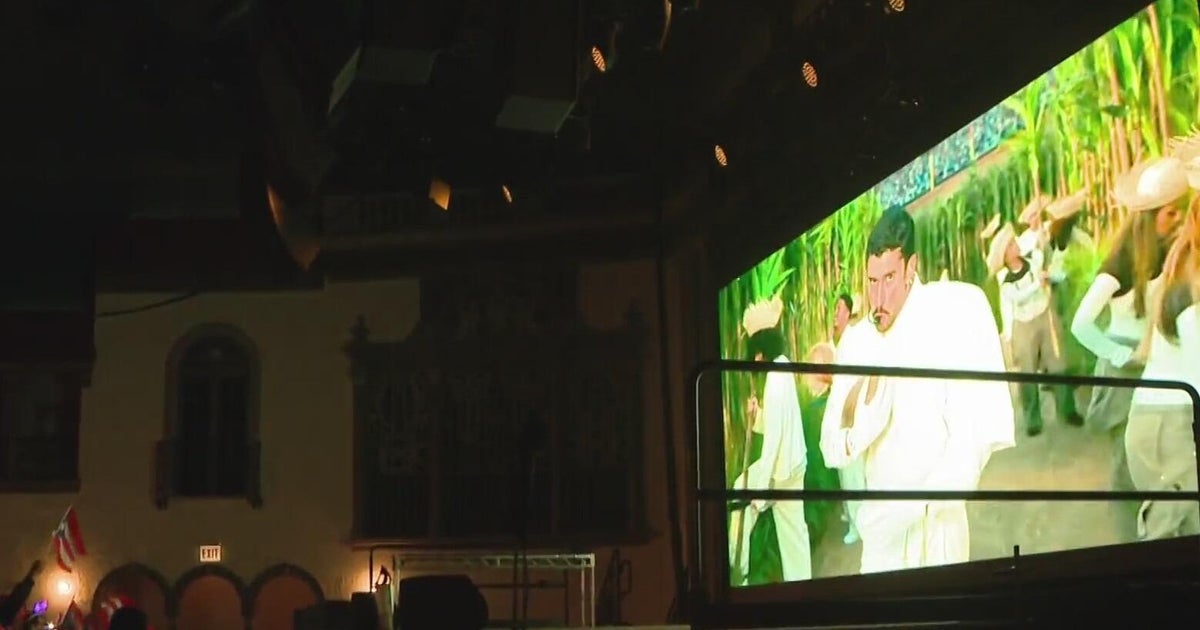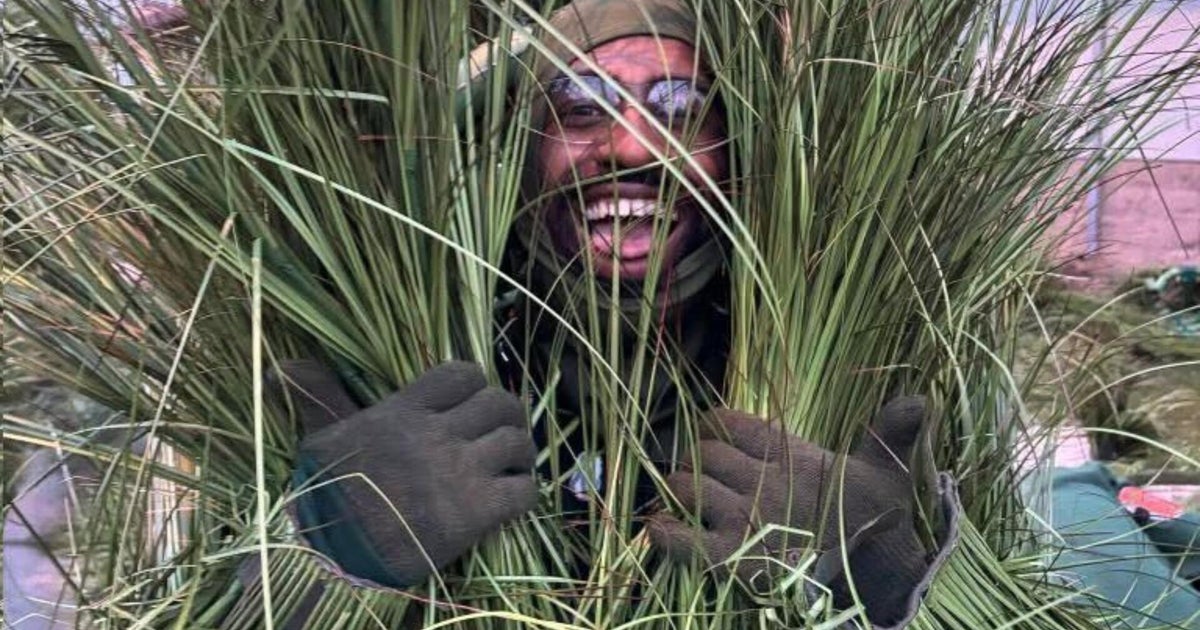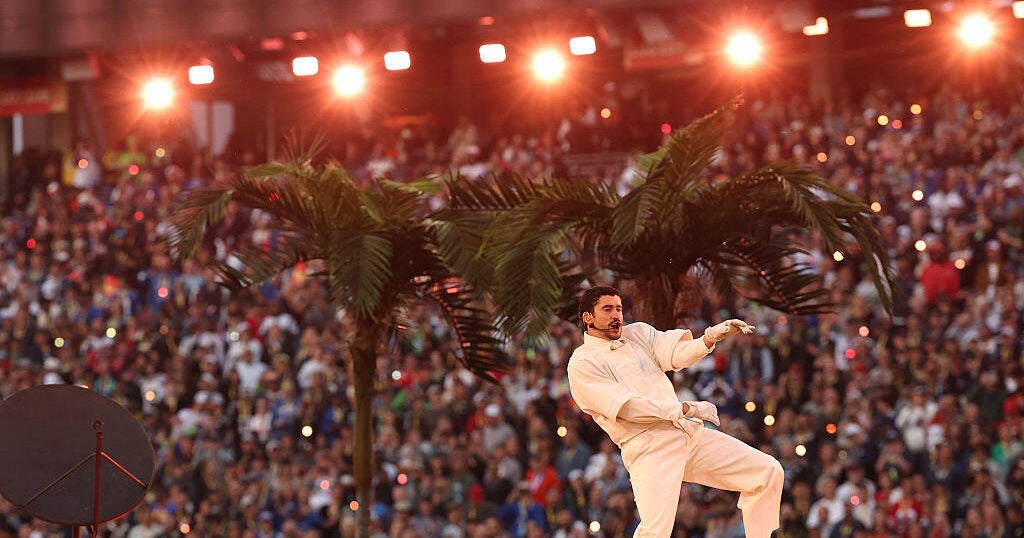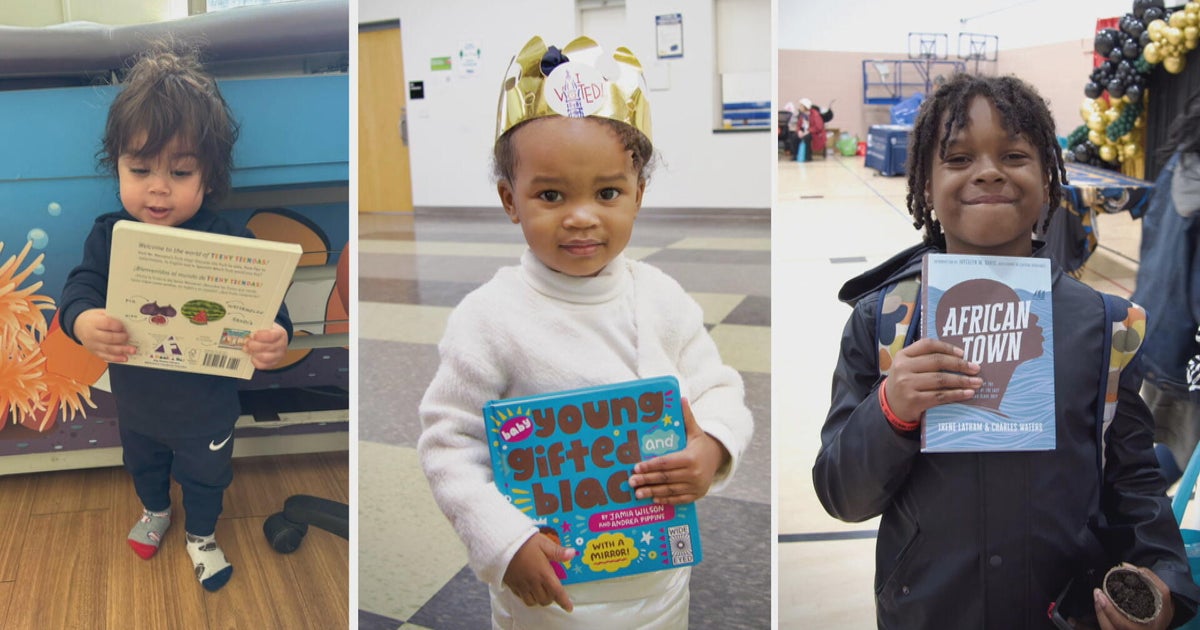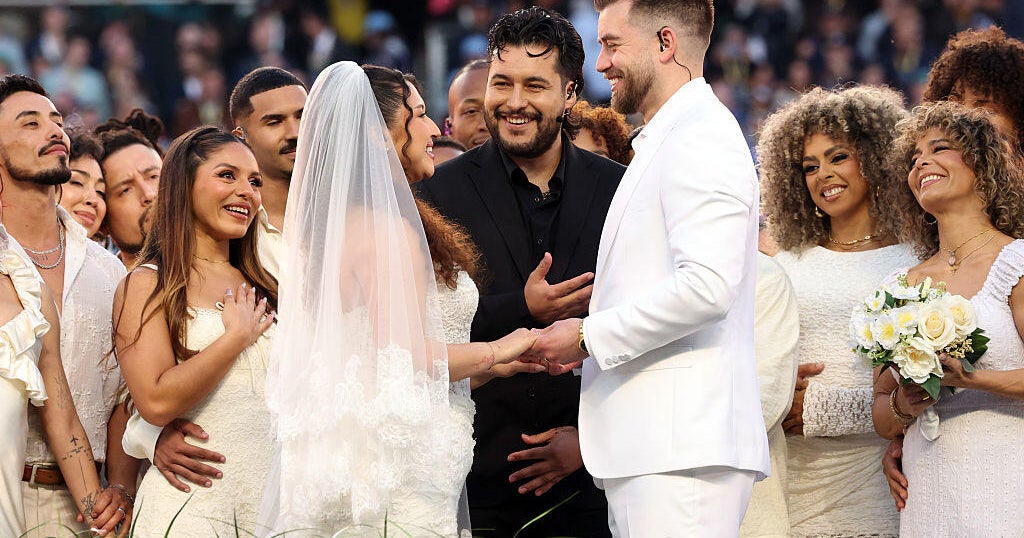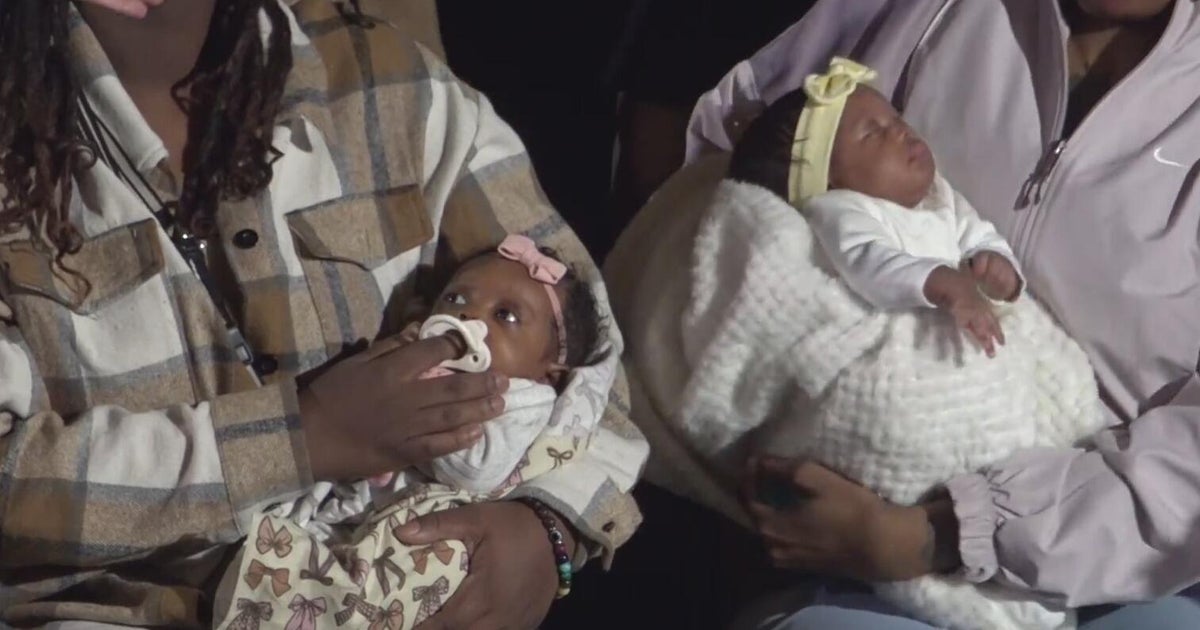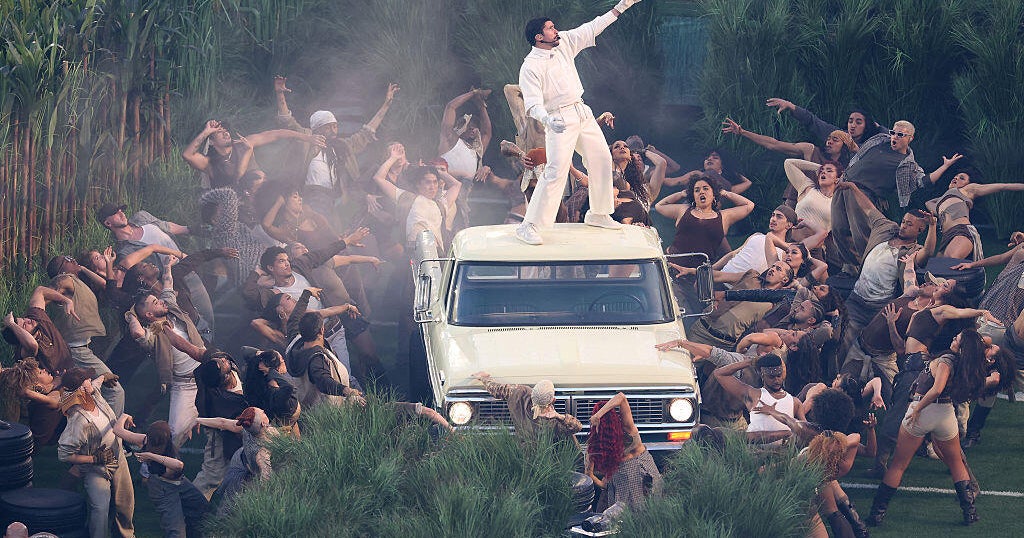WWE's Titus O'Neil Changed By Mentor Who Said 'There's No Such Thing As A Bad Kid'
(CBS Miami/CBS Local Sports) -- As a child, WWE Superstar Titus O'Neil thought a bleak future was predetermined. Like countless others in the Florida community where he grew up, he was told that by the age of 16 he would be either dead or in jail. He was told that repeatedly and had little reason to question why things would turn out any differently.
Feeling his fate had already been sealed, he played into the self-fulfilling prophecy. His attitude was poor, and his behavior was even worse. Fighting had become commonplace for O'Neil, whose temper was driven by an ultra-short fuse. Even at a young age, he felt frustrated. Feelings from being trapped in an underprivileged community and living in government housing were boiling over.
Instead of blowing out the candles on his 12th birthday cake at home with friends and family, O'Neil found himself residing at the Florida Sheriffs Boys Ranch. His temper had already caught up with him and was continuing to plague him at the facility. The fights persisted, and he was on the verge of getting kicked out. An early dismissal from the program would likely mean a juvenile detention facility would be his next stop with adult prison soon to follow.
Under threat of expulsion, O'Neil signed a contract with administrators vowing not to get into another brawl. But 30 minutes later he was throwing punches once again. Staff members were ready to write him off as incorrigible. So when he was called into the office, he knew it almost certainly meant that he would be packing his bags.
Instead, Patrick Monogue, president of the ranch, uttered eight words that would forever change the trajectory of his life: "There's no such thing as a bad kid."
Before the conversation ended, Monogue also assured the troubled youth that he loved and believed in him. Until that moment, love had been a painful presence in O'Neil's life, as those who had shown affection would frequently abuse and beat him.
Monogue would become a father figure for O'Neil, who gradually learned to control his emotions. Eventually, the kid who was quick to fight found another outlet for his frustrations in football.
With his large stature and athletic ability, the game came naturally, and he quickly excelled on the field. His talents earned him a scholarship to play under legendary coach Steve Spurrier at The University of Florida, one of the nation's premier college football programs.
In 1997, Monogue was in the stands as O'Neil notched his first collegiate sack. It was a game against the University of Tennessee, and the quarterback he brought down was Peyton Manning.
It was one of the final memories the two would share, as Monogue passed away from prostate cancer only a few weeks later.
But the father figure's words would live on in O'Neil, who turned to the squared circle and became a WWE Superstar following five seasons in the Arena Football League . They are also the title of O'Neil's new book, There's No Such Thing As A Bad Kid: How I Went from Stereotype to Prototype.
The Monday Night RAW-brand Superstar now devotes countless hours to positively impacting the lives of troubled youths whose futures seem as bleak as his once did. He is now showing a new generation that they have the ability to rise above their circumstances.
The 42-year-old father of two is among the most active talents in WWE's vast array of community initiatives that include partnerships with the Boys & Girls Clubs, Susan G. Komen Foundation, Special Olympics, and the Make-A-Wish Foundation. Between WWE and his own philanthropic efforts, he estimates that he does as many as 150 charitable appearances every year.
>>READ: Latest from the world of Pro Wrestling
The description of the book on Amazon stated that you were "repeatedly confronted with negative words and actions growing up." What was your upbringing like?
I grew up in an under-served community, basically the projects and a single-family [parent] home. My mother... I had three younger brothers, and so we were poor, on government housing. The biggest message that was always spread to me was that I'll be dead or in jail by the time I was 16 because of my behavior, because of my attitude. Every time I got in trouble, I was labeled a bad kid. There was really not an expected positive outcome from a lot of the kids that were in my neighborhood, just because of the circumstances we were coming from.
What kind of trouble were you getting into?
Mostly fights and just being disruptive. I never sold drugs or did drugs or drank or anything like that. I just had a really bad temper, and I would fight at the drop of a dime.
An adult tells you, "There's no such thing as a bad kid," despite that label that you had been given time and time again. Who was that adult, and how old were you when you had that conversation?
I was 12 years old. The man was Patrick Monogue. He was the president at the time for the Florida Sheriff's Boys Ranch, which is where I ended up going right before my 12th birthday to get out of trouble and to hopefully take a turn for the better.
I'd been getting in trouble there too. They were getting ready to kick me off. I had just signed a contract that I wouldn't get into another fight, and if I did, I understood that I would be sent home. Thirty minutes after that, I ended up getting into a fight with somebody. They had a meeting, and convened the meeting, and pretty much the decision was made that I was going to get sent home.
He called me in the office, and said, "I'm not going to send you home. I know I'm going to upset a lot of people, but I want you to stay here, because I believe that you can turn things around." Then he asked me, "Why do you think you get into trouble all the time?"
I said, "I don't know, man. I'm just a bad kid."
He told me to lift my head up, and he said, "You know, there's no such thing as a bad kid."
I said, "What do you mean? I'm getting in trouble here all the time. You all are getting ready to send me home. I've been told I'm going to be dead or in jail by the time I'm 16. How can you say that?"
He said, "I'm not going to give you the answer to that right now, because I truly believe in my heart that you're going to turn things around, and you'll come up with the answer for yourself," which is what I illustrate in the book. "But in the meantime, I want you to know that I love you, and I believe in you."
At that point, a lot of people had told me that they loved me, but then turned right around and abused me or beat me, but nobody had ever told me that they believed in me.
Did you keep in touch with him? That's quite the profound conversation.
I kept in touch with him just about every day or every week, all the way until 1997. He passed away from prostate cancer, but he did get a chance to see me do two things that nobody ever thought I would be able to do, and everybody said I wouldn't do. One was graduate. He saw me graduate from high school, and then he saw me sign a letter of intent to go play at the University of Florida. Then he saw my first collegiate sack, and it was against Peyton Manning, of all people.
He was like a father figure to you.
He was. And another guy named Charles Blalock, who I talked about a little bit in the book as well. Charles Blalock was the Superintendent of Schools in Live Oak, where the Boy's Ranch was. He took me under his wing as well. He's actually still alive. He's actually on his way to Tampa right now to spend the weekend with me, because I have my back-to-school bash here, and he wants to come down and see it in motion.
He loves the fact that I can get 30-plus thousand people in the stadium, and all for a good cause, and giving away thousands and thousands of backpacks, and giving kids physicals and eyeglasses. He's extremely proud of me.
I've only had three guys in life that I would consider father figures to me, Mr. Monogue, Mr. Blalock, and then Pastor Greg Powe, who passed away last year. All three of them were different men, but at the core of them all, they all loved me for who I was, and they wanted to see me be the best me.
>>MORE: WWE Superstar Mojo Rawley Owns 500 Pairs Of Zubaz
You turn your life around you, you play football, and eventually you wind up in WWE. Were you aware when you first arrived of everything that they were doing in the community, or was that just a nice discovery after you got there?
No, I wasn't. I wasn't very aware at all... It's been amazing to see, actually. Our social impact is not just regional, it's global. That's the thing that I love about it is that, being on a global platform, it gives me the ability to have a voice in various places. So things like this book cannot just touch people in the United States of America, they can touch people in Asia and China and Europe and all throughout the world, because of the platform.
Our company has done a very, very good job of not only helping bring awareness to various causes and various issues, but I think they've also done an extremely good job of partnering with the right people and the right organizations. We have a great partnership with UNICEF now as well. That just opens us up for more opportunities overseas.
Obviously Special Olympics is a great partnership as well. I used to work at a school that was, before I got into wrestling. I was the dean of students at a school that was for kids with disabilities. And so to be able to now partner and go to Special Olympics events and World Games and things like that, it's kind of like how everything comes full circle, especially in the world of philanthropy.
We hear about some specific kids that leave this lasting impact on some of your colleagues in WWE, kids like Connor Michalek or Jarrius Robertson. Is there one specific kid that's really had a super tremendous impact with you, and left just an indelible memory?
Yeah, there have been several. Unfortunately, one of them is not with us anymore. His name was Elijah Aschbrenner. I met him about five years ago or four years ago. When I met him, he'd beat cancer six times at the time. I met him in Atlanta. He's from Charlotte. We went backstage. I brought him backstage. He had his hair colored, and things like that. I just really developed a really great relationship off the bat with him, and his mother, and his brother too, Sam. I still talk to them to this day.
I guess probably three weeks prior to him passing away, I didn't, obviously none of us expected it, because he was doing so well, but his birthday ... I remember it like it was yesterday. I was in Albany, New York. This was before the brand split. We used to have to go to both RAW and SmackDown television. I wasn't slated to do anything on TV, and so I wanted to surprise him with, I have some 24-carat headphones on when I was Face-Timing with him, and he's, "Oh, those are really nice headphones." I was going to send them to him that Monday, but something just told me, "Hey, just go down and surprise him for his birthday," which was that Monday night. I didn't have anything to do for Tuesday, so I asked Michael Hayes and Vince [McMahon] and Triple H if I could fly down. I gave them the reason as to why, and they, without hesitation, told me yes.
I got into Charlotte about 9 o'clock and walked into the room. They had a birthday cake made up of the very first picture that me and him took. He was surprised. He didn't know that I was coming. He hadn't seen the cake yet. It was just awesome.
This is a great family, but to see how he impacted the Carolina Panthers, the world of NASCAR in the Charlotte area, his neighborhood.
Three weeks later, I get the phone call that he's gone. His mom called me about 30 minutes after that and said, "You know, I don't know how I'm going to get through this. You're the only person I know that could possibly help us get through this. Would you mind officiating the funeral?" I was like, I've never done that in my entire life, and I don't like funerals. I've only gone to three in my entire life, much like hospitals. Now I go to hospitals, and I don't have issues, but I used to have an issue going to hospitals, because my grandmother died in a hospice from breast cancer. I watched her erode away. It was just very difficult for me to go to the doctor's office or a hospital for a while, much like a funeral home.
But we went. I flew up and I did it. I was so proud and happy that I did. It just gave me a whole other perspective on how powerful people can be regardless of race, religion, or background. When you're just being a good human being, people will gravitate to you. They will love you. They will embrace you. They will celebrate you. Then they also want you to be in their corner as well when they need you the most. I was very happy and fortunate enough to have the opportunity to be one of those people for them at a time that they needed somebody the most.
Chuck Carroll is former pro wrestling announcer and referee turned sports media personality. He once appeared on Monday Night RAW when he presented Robert Griffin III with a WWE title belt in the Redskins locker room.
Follow him on Twitter @ChuckCarrollWLC.
